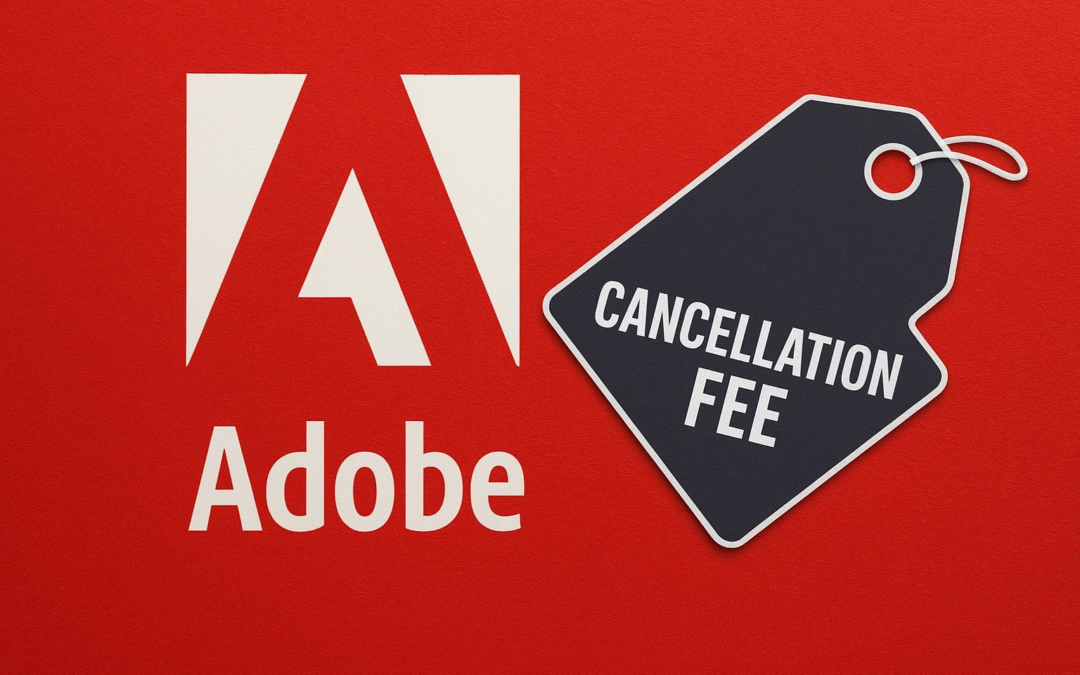Software giant Adobe is under fire for what consumers and regulators are calling deceptive subscription practices. Users attempting to cancel Adobe’s Creative Cloud plans are reporting cancellation fees exceeding $100, despite believing they had signed up for flexible monthly subscriptions.
Annual Contracts Disguised as Monthly Plans
At the center of the controversy is Adobe’s “Annual, Paid Monthly” plan, which many users assume to be a month-to-month subscription. In reality, it locks customers into a 12-month commitment with steep penalties for early termination.
According to Adobe’s terms, canceling after the initial 14-day grace period triggers an early termination fee equal to 50% of the remaining contract value. In practice, this means users who try to cancel halfway through the year can be hit with a charge of $100 or more—often close to the cost of several remaining months of service.
This policy has left many users feeling misled, with one Reddit user describing it as “a trap disguised as a subscription.” Another wrote, “I thought I was paying monthly, but apparently, I agreed to a yearly contract. It cost me $120 just to cancel.”
Federal Lawsuit Targets Adobe
In June 2024, the U.S. Department of Justice (DOJ) and the Federal Trade Commission (FTC) jointly filed a lawsuit against Adobe, accusing the company of hiding fees and making it intentionally difficult to cancel.
The complaint alleges that:
- Key cancellation terms were buried in fine print or hyperlinks.
- The cancellation process was designed to confuse and frustrate users, often requiring multiple steps or customer service calls.
- Consumers were not clearly told they were entering annual agreements.
Adobe executives have denied wrongdoing, insisting that the company’s terms are “transparent” and that the cancellation process is “clearly communicated.”
Consumer Backlash Grows
The backlash has spread across social media and online forums, with long-time Adobe users expressing frustration over what they describe as anti-consumer business tactics. Many say the policies erode trust and push them toward alternative software options.
Some users have even suggested disputing the charges with their credit card companies, calling the fees “unfair and deceptive.”
Ethical and Industry Implications
The controversy around Adobe’s cancellation policies underscores growing concerns about subscription traps in the digital economy. With more software moving to cloud-based monthly billing models, consumer advocates warn that companies are increasingly using fine print to lock users into long-term commitments.
Regulators argue that if customers are not clearly informed of these obligations upfront, it amounts to deceptive trade practices.
The Bottom Line
Adobe’s cancellation policy has turned into a flashpoint in the ongoing debate over transparency in digital subscriptions. As the FTC lawsuit proceeds, its outcome could reshape how software companies handle contract disclosures and early termination fees.
For now, consumers are urged to read the fine print carefully before subscribing—and to be wary of “monthly” plans that quietly hide year-long commitments.


This is a real victory for accessibility and dignity. No one should have to wait months to fix essential mobility…
Throwing away millions of working PCs isn’t innovation, it’s waste. Microsoft needs to rethink its upgrade strategy.
I understand companies want recurring revenue, but pushing ads on high-end appliances feels like crossing a line. Customers paying premium…